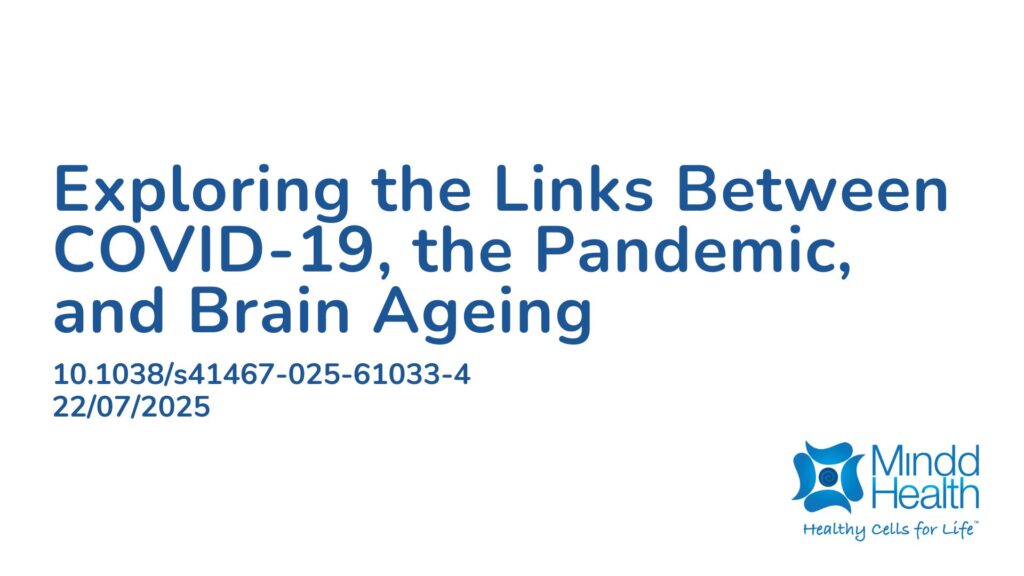Summary:
Research is showing that a SARS-CoV-2 infection has effects beyond the respiratory system such as fatigue, mood disorders, post-traumatic stress, and cognitive impairment. Research has also suggested links between the infection and accelerated brain ageing. SARS-CoV-2 can persist in the body for months and reach the central nervous system, contributing to vascular injury, inflammation, and possible neurodegeneration. Imaging studies show reductions in brain health integrity, while longitudinal data indicate greater risk of cognitive decline in those who were infected. The pandemic itself may also have contributed indirectly through stress, social isolation, and lifestyle changes. This study applied brain age prediction models using UK Biobank data. Participants scanned both before and after the pandemic showed accelerated brain ageing compared to controls, with an average additional 5.5 months of brain age. The effect was stronger in men and in individuals from disadvantaged backgrounds. Acceleration was observed regardless of infection status, but poorer cognitive performance was only linked to those who had a SARS-CoV-2 infection. These findings suggest that both COVID-19 and the pandemic context contributed to accelerated brain ageing, with important implications for health equity and long-term public health planning.
Abstract:
The impact of SARS-CoV-2 and the COVID-19 pandemic on brain health is recognised, yet specific effects remain understudied. We investigate the pandemic’s impact on brain ageing using longitudinal neuroimaging data from the UK Biobank. Brain age prediction models are trained from hundreds of multi-modal imaging features using a cohort of 15,334 healthy participants. These models are then applied to an independent cohort of 996 healthy participants with two magnetic resonance imaging scans: either both collected before the pandemic (Control groups), or one before and one after the pandemic onset (Pandemic group). Our findings reveal that, even with initially matched brain age gaps (predicted brain age vs. chronological age) and matched for a range of health markers, the pandemic significantly accelerates brain ageing. The Pandemic group shows on average 5.5-month higher deviation of brain age gap at the second time point compared with controls. Accelerated brain ageing is more pronounced in males and those from deprived socio-demographic backgrounds and these deviations exist regardless of SARS-CoV-2 infection. However, accelerated brain ageing correlates with reduced cognitive performance only in COVID-infected participants. Our study highlights the pandemic’s significant impact on brain health, beyond direct infection effects, emphasising the need to consider broader social and health inequalities.
Article Publication Date: 22/07/2025
DOI: 10.1038/s41467-025-61033-4



